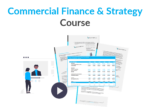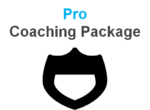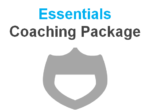
5 Tips to Survive Busy Season
Let’s face it, busy season can be a rough time for the majority of Accountants and Auditors out there. Copious amounts of monotonous work, long hours, tight deadlines, grumpy clients and stressed out seniors combined can make anyone want to quit, whatever profession you’re in!
To help you weather the storm and survive busy season (as well as other manic times of the year), in this post we share our MUST DO battle tested hints and tips.
We’ll discuss not only what you can be doing to make this period of time as manageable and enjoyable as possible, but also how you should make the most of it for your own personal development.
In addition to the points we cover we also expect you to keep tabs on your own personal and social life outside of working hours (e.g. nutrition, sleep and a healthy & happy lifestyle). These personal aspects are what keep you going for the medium to long term and of which you certainly should not sacrifice for short term deadlines (which will likely be extended again and again anyway!).
So here we go.
- Have a plan
Take a step back and make a realistic plan. This is number 1 on our list for a reason.
“Failing to plan is planning to fail” – Benjamin Franklin
You should have a high-level plan (as well as your own personal day to day plan) with the key activities/outcomes and a timeline that you’re prepared to stick to.
Within this plan make sure you prioritise. You can’t finish everything to a high quality so ensure you give yourself ample time to cover the areas your manager/Partner places a high risk/more emphasis on first. Any time you have left over can then be used to finish the smaller less significant tasks.
You may need to tweak and revisit this plan regularly as things change but always make sure you don’t overcommit. It’s much better to under commit and over perform than the other way around.
Your boss will need to agree with the plan and if they want to include optimistic deadlines then let them know your concerns. If you do this and then happen to overrun, then they may and should be more lenient.
Your boss will hate me saying this, but always be mindful that the “deadline” is likely to be flexible and move anyway (perhaps even multiple times!). You could be told it’s the ultimate deadline as they might expect delays and it also helps them squeeze more effort out of you so make sure you manage their expectations.
- Follow the 80:20 rule
In line with point 1 above, if you prioritise your efforts on the most important tasks that your managers are concerned with then you will keep them at least somewhat happy.
In addition to this you can finish your work faster by utilising the 80:20 rule (i.e. 80% output for 20% of the effort) for each task that you perform. You can do this by breaking each task down into parts and focusing on the parts which are easiest & fastest to complete yet that will produce the majority of the output required. If you do this on all of the tasks then you will have at least covered the majority of everything you needed to by the deadline.
Top tip: Only YOU can control your pace of work (i.e. efficiency of output). You don’t have to work at 100% effort at all times and if you look around the room you might see a few people that definitely don’t work at their full capacity, yet they get away with it.
If you convince your boss and team that the pace you want to work at is also the pace that you are capable of working at, then they won’t expect much more of you. It’s hard to slow your pace of work later once they know how fast you can work, so make sure you start using your “long term” pace sooner rather than later.
If you prioritise, get the main things ticked off the list and regularly make sure your boss knows about the great output you’re making, then the rest of the time you can do anything you like and they won’t care, believe me!
- Keep your focus
Now that you have your plan and know what you need to get done, make sure it gets done!
No matter what stage you are in your career, you WILL BE most efficient if you work methodically through each task one at a time before moving onto the next.
Some tasks won’t be completed without input from others (e.g. client meetings or needing further information) and that’s fine, but still work through one task at a time and exhaust it’s completed state before moving onto the next.
If you’re finding this impossible to do because of disruptions from other team members/clients, simply block out some time in your diary so it looks busy, make yourself disappear (you could even book yourself a meeting room to work in) and don’t check your emails/phone until you’re done.
Lastly, don’t waste time by attending meetings you don’t need to. Excuse yourself from these distractions and you’ll free up so much time, not to mention avoid any additional work that might get delegated to you on the back of those meetings.
- Work strategically
Here’s a little trick that can help you organise and utilise the day most efficiently.
Try to have all of your meetings and request all of the information you need in order to complete your written tasks within the 9am-5pm working day. By doing this the noisy part of the day is when you’re also most active but also then in the evening, when the client and other team members have quietened down/gone home, you can simply write up your findings.
If you find you have additional questions you can then get them collated ready for the next day or send additional questions via email so that you can follow them up first thing in the morning.
Top Tip: To get the fastest responses make requests to clients/team members in person. If you need to send something via email, then send it and then go over to speak with them.
By doing this you can gently emphasise urgency through this action alone, answer any clarifications they may need and ultimately, motivate them to complete your request as they know you’re not afraid to walk over and remind them you’re still waiting within earshot of their colleagues.
- Be positive
First and foremost, try to stay light-hearted and have some fun with your team.
For most, chances are you will never look back on life and wish you worked harder…
When you look back on this time in years to come, you’ll wish you didn’t’ take things so seriously and enjoyed being around your fellow like-minded peers.
Working in Audit and Accounting can be a brilliant way to meet a people from all walks of life with different career plans that might inspire you and many of whom you’ll stay in touch with for years to come. These peers will also end up in a variety of different career pathways and you never know what opportunities they might bring your way.
Secondly, always think about what you can do now to benefit your future.
Naturally, Auditing & Accounting can be a solid foundation to your career in business, but you should also be ensuring that you keep learning and progressing in your day to day role to help you secure your next.
To do this you need to decide where you want to get to and fully understand what you need to do to give you the best possible chances of getting there. You should then be incorporating some activity every day/week that is in the best interest of your own personal development and to boost your CV/Resume.
Remember that where you are now and the “hole” you might feel like you’re in is only temporary. If you work positively, you’ll not only start moving towards your next role IMMEDIATELY but also enjoy your everyday working life.
Exit Options | Mapping the post-accounting & audit landscape
A lot of the clients we coach ask about moving into more strategic & commercial roles after spending time in traditional accounting & audit, but don’t know where to start or even what opportunities exist …so-much-so that we’ve put together a map of the landscape of accounting exit opportunities, which I encourage you to check out!
Want to land (and master) more strategic and commercial roles?
Learn how to upskill beyond your technical accounting & audit background in the first (and only) online course built specifically for accountants. Through interactive modules, case studies, and real-world applications, you’ll learn how to confidently build financial models, assess business opportunities, and everything else needed to contribute meaningfully to strategic decision-making. Build hard commercial skills to future-proof your skill set and prove you can translate your accounting background into a commercial context with the Commercial Finance & Strategy – Principles and Execution online course.
Spice up your CV/Resume for the post-accounting & audit world
We’ve created a digital guide specifically to help those of you applying for more commercial & strategic roles. Our straight-talking CV/Resume advice for Accountants/Auditors is the only guide that is highly-specific to the traditional accounting & audit background: we give you real-life good & bad examples for showcasing your experience for strategic roles, the best structure & content to win over recruiters, a strategy for distributing your CV/Resume, interview advice, and more!
Want personalised advice from one of our Co-Founders?
We’ve been where you are and can help you forge your swift exit. Click here to Get Coached.











